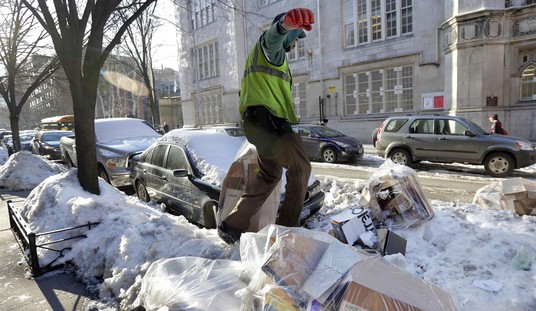Editor’s Note: This is the nineteenth in a series of interviews and story excerpts spotlighting some of the most innovative fiction writers at the recently-launched new media publishing platform Liberty Island. The first fifteen can be read in this collection here and the sixteenth, seventeenth, and eighteenth are here, here and here. Find out more about Liberty Island’s new writing contest here, running through the end of April. An index of 8 newly-released stories can be found here. Please check out this interview Sarah Hoyt conducted with CEO Adam Bellow here to learn more: “It also has a unique mission: to serve as the platform and gathering-place for the new right-of-center counterculture.”
David Churchill Barrow is an attorney and historian who grew up on a small farm in Massachusetts, but now resides with his wife MaryLu near Tampa, Florida. They have three adult children. David has written guest columns and articles for The Marine Corps Times, The Tampa Tribune, and The Marine Corps Gazette.
1. Who are some of your favorite writers, books, movies, and intellectual influences?
My favorite novel is Moby Dick, for reasons given in my first LI blog entry, but I can tell you the exact moment I got hooked on historical fiction. One morning I took my seat next to the radiator in my 4th grade classroom, and turning to the left I saw the book display Mrs. Dyer had put up that morning. There, right in the middle, was an abridged version of Stevenson’s Kidnapped, with the coolest sword fight on the cover I ever saw! (I’m quite sure such violent depictions would never be allowed in today’s classrooms… No wonder the boys are bored and fidgety). Favorite movies? Sands of Iwo Jima (Dad was a WWII Marine) The Godfather (wife is Sicilian), Glory, and Master and Commander, the Far Side of the World – “Do you want a guillotine in Picadilly?!!” “NO!” “Do you want that raggedy-arsed Napoleon for your king?!!” “NO!”
2. How do you describe yourself ideologically?
I’m not much for ideology of any stripe… I suppose then I am a classical “liberal,” i.e. a Burkean conservative. I do have streaks of Libertarianism, but I’m for a robust foreign policy. Displays of apparent weakness or lack of resolve encourages the wrong sort of people. It has always been thus.
3. Which thinkers/commentators have influenced you?
As for thinkers, there is of course, Burke, and in no particular order Locke, John Stuart Mill, Lincoln, Bruce Lee, Churchill, Solomon and Jesus.
4. Where are you from/currently reside?
I was raised as a “Swamp Yankee” in a little village on the South Shore of Massachusetts, but now live with my wife MaryLu just outside of Tampa. We have three grown kids.
5. What are your writing goals?
I write in the hope of leaving a mark – maybe one that stings a bit. Think of how just one novel affected our history. There’s a story that when Lincoln met Harriet Beecher Stowe, the author of Uncle Tom’s Cabin, he said something like “So! Here’s the little lady who started this great big war!”
6. Where can people find/follow you online?
Where can people follow me online? They can’t, unless they go to Liberty Island!
7. What’s your craziest hobby/pastime/interest?
I ride a 1971 Triumph Bonneville chopper. I collect historical and replica cutlery and firearms, and have been known to dabble in a few martial arts and Asian philosophy. MaryLu and I love to spend an afternoon listening to “Flower Power” bands, and a crazy bunch of guys called Off Kilter at Epcot.
Oh, and if it is not too late, I thought of one other weird hobby – I can draw and cock an SAA Colt “Peacemaker” about as fast as you can blink, and I can do a “road agent spin” with either hand.
An Excerpt from David Churchill Barrow’s “A Soul Restored”:
Color Sergeant Edmund Findlay Churchill, Company E, 18th Massachusetts, 3rd Brigade, 1st Division, V Corps, Army of the Potomac, was wondering why the hell the withdrawal from the battle lines had to be at 9:00 that night. He was tired – more bone weary than he’d been his whole life; and the last few years had been some life. It’s not like the march would be any big military secret. Everybody, up to and including the Johnnies, knew that they always pulled back behind some river to lick their wounds after taking a beating like that.
His older brother Frederick, who had enlisted in the same regiment a year before he did, had been killed at Second Bull Run. Good name for that battle — it was the name of the river the army had skedaddled to get behind the first time Lee showed them “what for.” Edmund got his first taste of it against that terrible damned stonewall along Marye’s Heights above Fredericksburg.
Back home, a sturdy New England stonewall was such a peaceful, neighborly and handsome thing that it could be the pride of an old Yankee’s eye. But if stones themselves could be evil, the smoking, dirty, jagged line of rocks on that ridge seemed to mock God himself. He’d seen the last of the color guard go down, so he ran up, secured the national flag, and got it safely off the field. That was the first time he’d heard that curious buzzing sound, like bees pouring out of a disturbed hive; the sound of Minie balls whizzing past your head.
They’d decorated him for that, and made him a permanent member of the color guard, but what difference did it make? Back across the Rappahannock they went, what was left of them. His twin brother Isaiah, who had enlisted with him, got real sick at Fredericksburg. Last letter Edmund got from home said Isaiah was getting better slowly. He was lucky – more men were dying of sickness in the lines than from shot and shell. They’d called Antietam and Gettysburg victories, but he’d seen — and smelled — the cornfield at one and the wheat field at the other when the shooting stopped.
Is “victory” supposed to make you sick to your stomach? Isn’t “victory” supposed to mean the other side quits? Well, they might move around some, but Lee and his Rebs NEVER QUIT. Both times they’d just marched unmolested right back into Ol’ Virginny, to rest up and get ready for the next round of bloodletting. This last round, just about over now except for some skirmishers popping away at each other, seemed more than he could bear.
Three days before, V Corps had forded the Rapidan and marched down the Germanna Pike Road, through this horrible scrub on either side that was passable for neither man nor beast. Next they were ordered to turn right on the Orange Courthouse Turnpike, to swat away some nosy Reb brigade paralleling their line of march. Only it wasn’t a brigade. It was “Old Baldy” Ewell’s entire bloody Confederate II corps.
The fight that broke out in the thick brush on both sides of that turnpike was the biggest bunch of bushwhacking Edmund had seen in two long years of war. Hell, you couldn’t even SEE the Johnnies until the fire of their muskets flared out a yard in front of your face. It was also mighty disconcerting in the quieter moments to hear another big fight break out on a parallel road a couple of miles to the southeast. If that should go badly, they’d be flanked on their left, and in a bad fix for sure.
Then the underbrush caught fire. There were wounded boys out there they couldn’t reach. That screaming… Edmund knew then and there he’d wake up in the middle of the night years later hearing that high-pitched screaming. Sometimes a shot would end the sound, and they knew some poor boy had gone to his maker — by his own hand. For two days it went on, until both sides dug in, exhausted, and just about where they’d started. On the morning of the third day orders came down to move out that night as quiet as they could.
Once it dawned on him that it was mostly over, at least for the time being, Edmund had this strange, almost overwhelming longing to go to church. He wasn’t a particularly religious man – not like those fire-belching Boston abolitionists he’d heard back home. Oh, he believed in their cause and all — he’d answered it; and there was of course this little matter of the Union he’d been raised to love being torn in pieces. There just seem to be something … what exactly was it? off-putting? unseemly? … about going around wearing your religion like a top hat.
He couldn’t put his finger on it, but he knew “Swamp Yankees” like him had a different outlook on matters of the spirit than some of these fancy Boston Brahmins, who always seemed like they were looking down their noses at something or somebody. Maybe it was because he was a descendant of those luckless Pilgrims whose Mayflower landed by accident not far from where he grew up. “They were NOT Puritans, dammit!” he would often tell folks who made that common mistake. “They were Separatists… All they wanted was to mind their own business, and for you to mind yours.”
It wasn’t that God was hard to seek out on a battlefield. Any man who doesn’t start praying when that Rebel yell echoes through the woods is either deaf or already dead. He’d even worked out his own little liturgy that he shared with the younger lads in the color guard, to soothe their nerves — and his. As they formed ranks and the lads loaded their Springfields, they would recite the 23rd Psalm together softly.
“The LORD is my shhhepherd…” they’d say together, as they bit into the paper cartridges and he uncased the colors.
“I shall not want…” The boys put the powder down their barrels, while he and the other color-bearer placed the flags in the carriers strapped to their bellies.
“He maketh me to lie down in green pastures…” they whispered, as they seated and rammed down their Minie balls, and he dressed their line.
They were a great big fat target with those huge flags sticking up like that, and the lads couldn’t even shoot back unless the colors were in immediate danger. No, God didn’t seem all that far away when such was the task at hand.
Read the rest at Liberty Island…
Also check out Barrow’s “Ense Petit Placidam” on Liberty Island here
****
image illustration via shutterstock / Brandon Bourdages











Join the conversation as a VIP Member